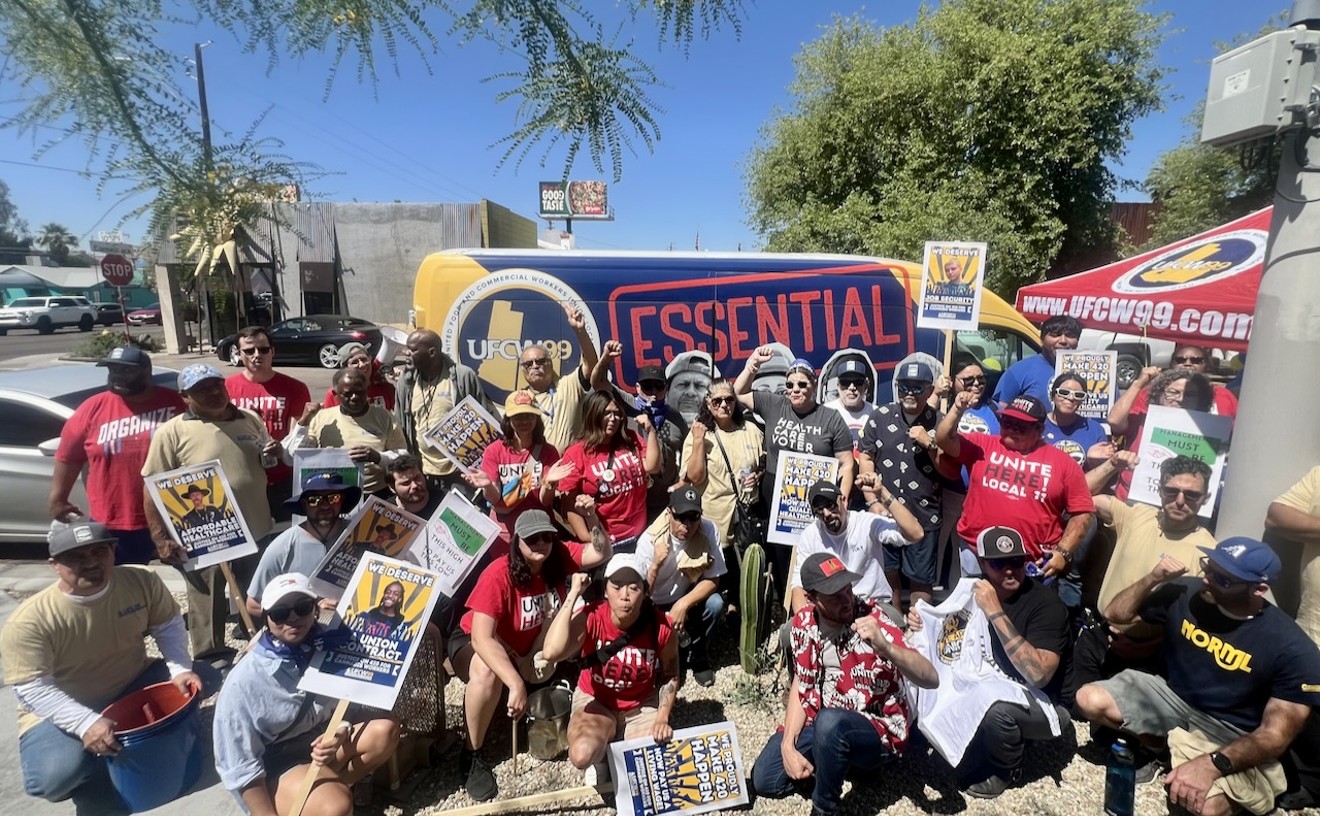See also: Blunt Justice
See also: Marijuana is Real Medicine for a Long List of Ills
A database of everyone who has an Arizona medical-marijuana card is being well-used by employers and law enforcement officials, a report of database users shows.
The 2010 Arizona Medical Marijuana Act requires the state Department of Health Services to set up and maintain the computer list (see below) of registered patients and caregivers. Its primary use is to ensure that patients don't get arrested if caught with pot by police.
As of last week, 2,646 access accounts have been created for people to check on the validity of medical-marijuana cards. Police departments, sheriff's offices, and even federal outfits like the Border Patrol and ATF are among the public safety shops that have set up accounts. The DEA only has one account that it hasn't yet used.
No "fishing" is allowed. The database, which now contains info on about 40,000 patients and caregivers, can't be searched by inputting names or addresses. Only a registration card number can be submitted for verification.
In other words, cops can't sign up for access to the database, then randomly check to see if Maricopa County Attorney Bill Montgomery or anyone else is a patient. But if Montgomery gets stopped with a couple ounces of Blackberry Kush and provides a card number, police can then verify whether or not he's okay under state law to possess marijuana.
It's up to each police agency whether to obtain access privileges for individual officers, or obtain just a few access accounts that can then be used by supervisors or dispatchers, who would get the card numbers relayed to them by officers on the street. Most agencies just have a few accounts, but some have a lot more. Of the 2,646 total accounts, 851 are from a single police agency -- Phoenix police.
The report by DHS doesn't list all of the times that the database has been accessed by anyone, just the date of the latest access. Many police agency accounts were accessed in the last few days, which suggests they are encountering patients frequently and checked on the validity of their cards.
Some police agencies -- like the Cottonwood Police Department and the DEA -- have set up accounts, but have never actually checked anyone's registration card.
Probation departments, especially the one in Maricopa, are regular users of the database, though we're not sure why. Perhaps people on probation are being caught using marijuana by their probation officer, but then presenting a medical-marijuana card to the officer. We left a message with Michael Cimino to ask him about this, but he hasn't called back yet.
Last year, the Arizona Legislature expanded the scope of the system, allowing employers to also get access to the database.
The DHS list of database account holders shows the names of numerous employers, both public and private. Arizona Game and Fish, Go Daddy, Swift Transportation and PetSmart are among the account holders.
An employer would typically use the database in conjunction with a drug-testing program. If an employee fails a drug test, or perhaps if the employee simply knows a drug test is about to be administered, he or she might present a medical-marijuana card for verification. The employer then logs in to the DHS database to validate the card number.
Several medical-marijuana-related businesses, like Arizona MMJ Community Clinics, have accounts. Presumably, those businesses would want to ensure a prospective employee has patient or caregiver status.
The list also contains many drug-testing businesses. Chad Haas, spokesman for Complete Testing Solutions, says his company routinely validates medical-marijuana cards for employees who have been ordered to take a drug test by their employer. Haas says that, in his experience, employers "are pretty lenient" about their card-holding employees unless the patient has a job that could involve danger to others, such as a bus driver.
We're just wondering how long before the state's database gets hacked.











